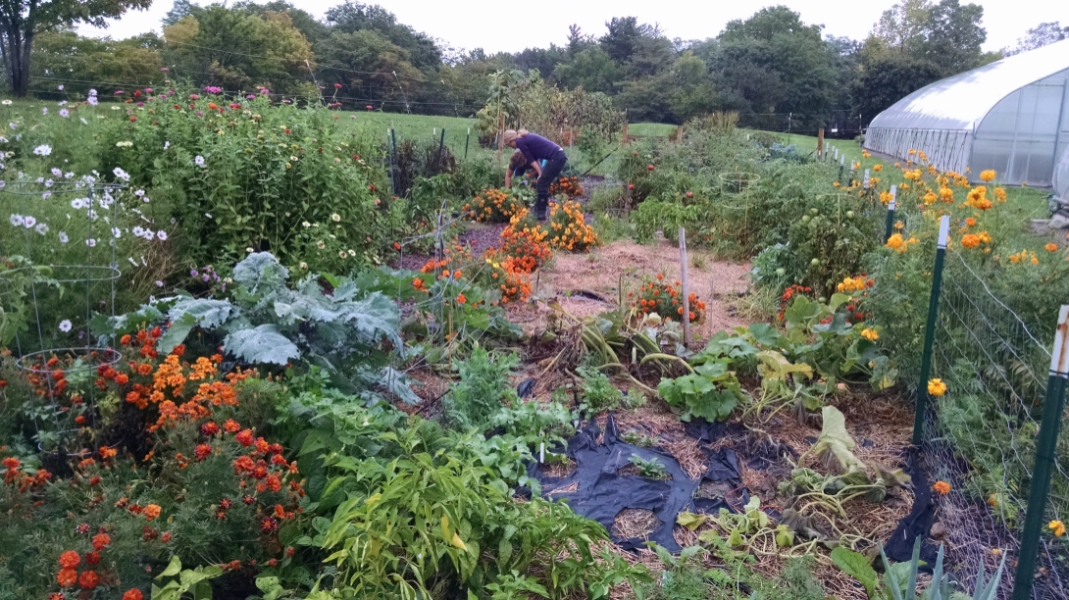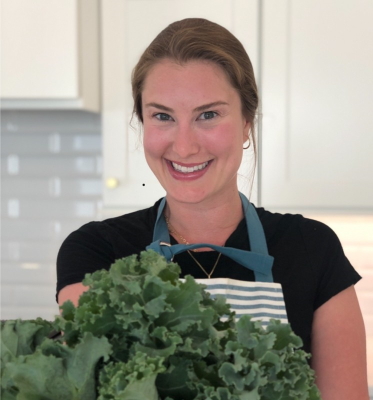 STJOESFARM.ORG
STJOESFARM.ORG
The coronavirus pandemic is shining a glaring new light on an old problem. Recently published research shows food insecurity, a lack of nutritious food due to inaccessibility or unaffordability, has increased at an alarming rate in households with children since the onset of the crisis.
A Michigan hospital believes the solution lies beneath the soil. St. Joseph Mercy Hospital in Ann Arbor, Michigan has created a farm-based summer and after-school program that teaches kids food is medicine.
Nutrition Buddies, which launched in July, centers on the intersection of agriculture, health and science. Right now, it’s teaching 30 low-income middle school students how access to healthy food is the key to disease prevention. It also gives the kids the access they so desperately need.
Students and their families are given free membership to the St. Joseph’s Farm Share for 24 weeks. St. Joseph’s collaborates with 18 local farms to offer a wide variety of fresh produce to local customers.
Due to COVID-19, the summer camp was virtual, and its after-school component will also be online. The pandemic is actually highlighting the need for easily accessible whole foods in the hospital’s community, said Alexandra Babcock, lifestyle and culinary medicine coordinator at St. Joseph Mercy Health System.

Alexandra Babcok
“Our families have been enormously thankful for the support at this time. They’ve been really open about the fact that they are struggling,” she said. “It warms my heart to see they have the ability to get the healthy food they want and need. Food assistance isn’t just about providing any, it’s about providing equitable food … and they’re very thankful for that. Parents are really looking forward to giving their kids an opportunity to better themselves in a way that they are not able.”
Nutrition Buddies is showing the kids how to grow produce at the 23-acre farm located on St. Joseph’s campus. The program also incorporates cooking classes to teach them how to prepare healthy meals that taste good.
Power of plants
Using food as medicine is “getting back to addressing the root cause of disease, not what we do in traditional medicine, which is the treatment of symptoms,” Babcock said. “When you give somebody a whole food, plant-based diet, and the ability to manage their stress and exercise, it’s been proven to show that you can treat disease in a different way, a better way that’s treating the cause.”
Research published in the journal Progress in Cardiovascular Disease concluded that people who follow a plant-based diet had a 40% lower risk of death from cardiovascular disease, a 34% reduction in hypertension risk, lower cholesterol and significant weight loss.
“A plant-based diet has the power to not only prevent heart disease, but also manage and sometimes even reverse it — something no drug has ever done,” wrote Dr. Hana Kahleova, the study’s author and director of clinical research for Physicians Committee for Responsible Medicine.
“Addressing food insecurity — a key social influencer of health — is one of St. Joe’s priorities to reduce both hunger and lack of nutritious food options, the latter often contributing to obesity, diabetes and heart disease,” said Alonzo Lewis, president of St. Joseph Mercy Ann Arbor and St. Joseph Mercy Livingston, in a written statement. “Developing innovative ways to integrate nutrition into medical treatment will help keep people healthy and reduce preventable disease.”
St. Joseph’s of Ann Arbor reports that of the more than 46,000 people it screened to identify social influencers (housing, education, job opportunities) of health, approximately 20% reported food insecurity. The problem reaches coast to coast. According to The Brookings Institution, food insecurity in U.S. households with children under 18 has increased by about 130% from 2018 to today.
In addition to the high-risk students Nutrition Buddies serves, the program also includes a group of St. Joseph’s physician residents. They’re taking courses in nutrition and culinary medicine and virtually join the students for the group cooking classes.
Post-pandemic, the residents will join the students getting their hands dirty on the farm together. Students and residents will continue group cooking classes but in an educational kitchen.
“It’s doctors and at-risk kids together planting, harvesting, preparing and eating healthy foods,” explained David Ripple, Saint Joseph Mercy Health System vice president of development, in a written statement. “It’s a fun and engaging environment where everyone can learn about food as medicine and how to lead healthier lives.”
Nutrition Buddies is supported by a grant from the Michigan Health Endowment Fund, and the program has plans to grow beyond Ann Arbor. Nutrition Buddies directors are planning to create an implementation guide so other health systems throughout the nation can adopt its model.





























